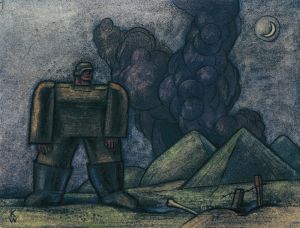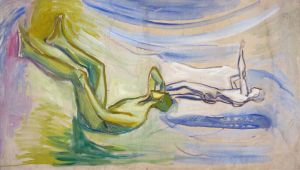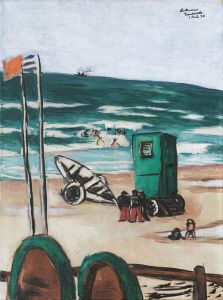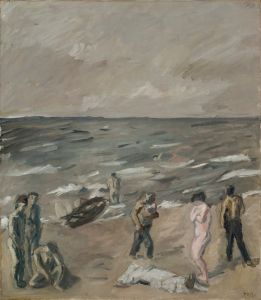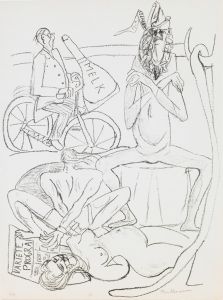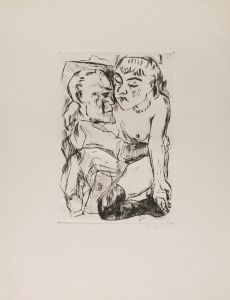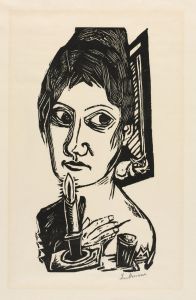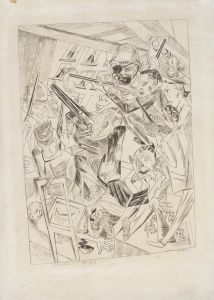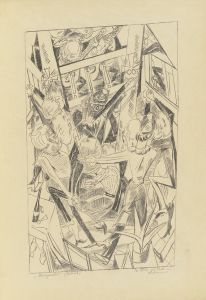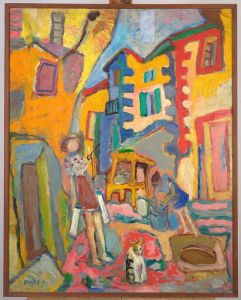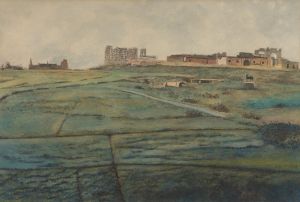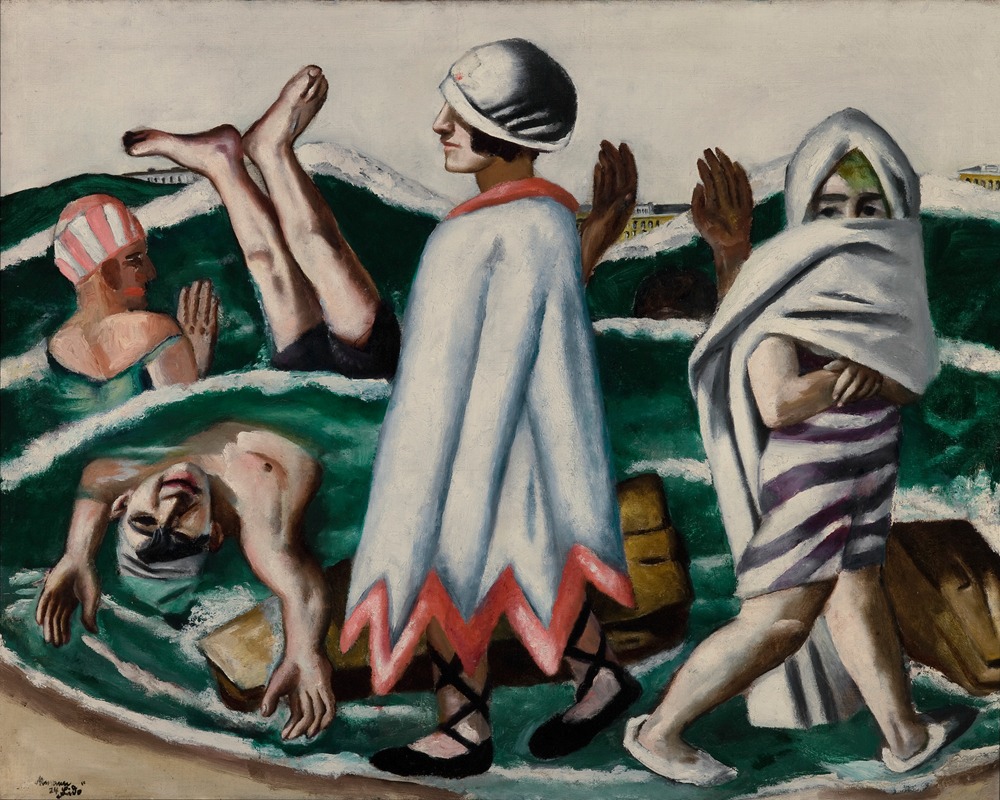
Lido
A hand-painted replica of Max Beckmann’s masterpiece Lido, meticulously crafted by professional artists to capture the true essence of the original. Each piece is created with museum-quality canvas and rare mineral pigments, carefully painted by experienced artists with delicate brushstrokes and rich, layered colors to perfectly recreate the texture of the original artwork. Unlike machine-printed reproductions, this hand-painted version brings the painting to life, infused with the artist’s emotions and skill in every stroke. Whether for personal collection or home decoration, it instantly elevates the artistic atmosphere of any space.
"Lido" is a painting by the German artist Max Beckmann, created in 1930. Beckmann, born in 1884, is known for his distinctive style that blends elements of Expressionism and New Objectivity. His works often reflect the tumultuous socio-political landscape of early 20th-century Europe, marked by two World Wars and the interwar period.
"Lido" captures a scene at a popular leisure destination, likely inspired by the Lido di Venezia, a famous beach resort in Venice, Italy. The painting is characterized by Beckmann's typical use of bold lines, stark contrasts, and a somewhat distorted perspective, which together create a sense of tension and dynamism. The composition features a group of figures engaged in various activities, possibly sunbathing, conversing, or simply enjoying the seaside atmosphere.
Beckmann's choice of subject matter in "Lido" reflects his interest in depicting modern life and its complexities. The figures in the painting are rendered with a sense of individuality and psychological depth, a hallmark of Beckmann's portraiture. His use of color is both vibrant and somber, capturing the duality of leisure and the underlying anxieties of the era.
The painting is part of Beckmann's broader body of work that often explores themes of existentialism, human suffering, and the search for meaning in a rapidly changing world. "Lido" can be seen as a microcosm of society, where different social classes and personalities intersect in a shared space, yet remain isolated in their own experiences.
Max Beckmann's career was significantly impacted by the political climate of his time. With the rise of the Nazi regime in Germany, his art was labeled as "degenerate," and he was forced to flee the country in 1937. Beckmann spent the following years in exile, first in the Netherlands and later in the United States, where he continued to produce art until his death in 1950.
"Lido" is an important work within Beckmann's oeuvre, showcasing his ability to blend personal expression with broader social commentary. The painting is held in high regard for its technical mastery and its poignant reflection of the human condition during a period of great uncertainty and change.
Today, "Lido" is housed in a prominent art collection, where it continues to be studied and appreciated for its artistic and historical significance. Beckmann's legacy endures through his influential body of work, which remains relevant for its exploration of the complexities of modern life and the enduring human spirit.






